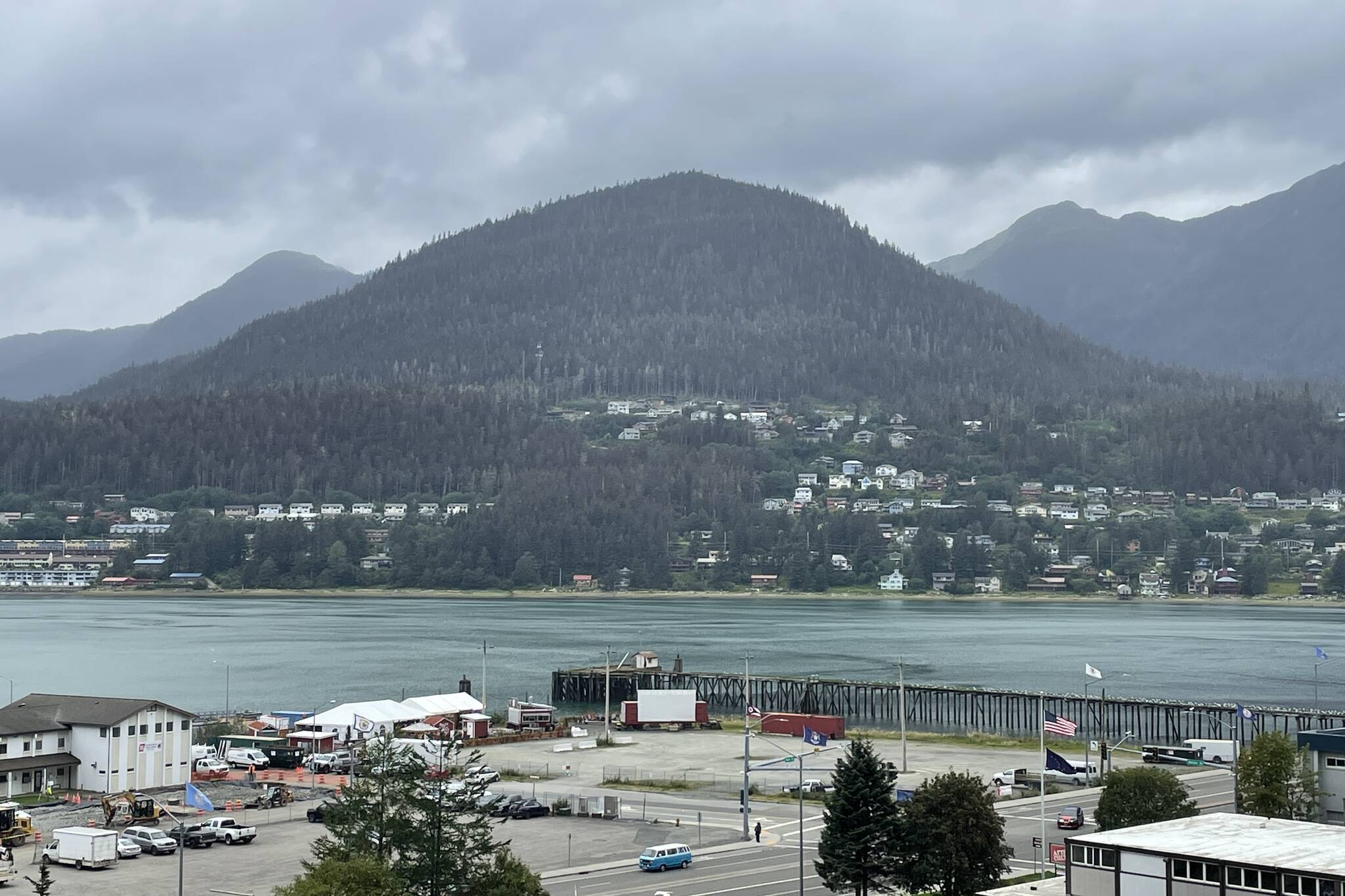The announcement last August by Norwegian Cruise Lines that it would donate the waterfront land it owned in downtown Juneau to Huna Totem Corporation took many by surprise.
The 2.9-acre parcel, located in the “subport” area adjacent to Coast Guard facilities, was purchased by NCL for $20 million in 2019 for development as a new cruise ship dock and terminal. During the planning process, NCL executives realized it was more sensible for local Alaskans to steer the project and “that Huna Totem, owned entirely by Native Alaskans, was the right stakeholder to lead this effort.” In return, NCL will secure preferential use of the pier after construction, estimated to be completed by the 2025 tourism season.
This unexpected change promises to benefit Juneau in a variety of ways, turning the development, named Aak’w Landing, into a locally owned and managed enterprise with cultural ties to Juneau and Southeast Alaska.
Toward that end, HTC is partnering with Goldbelt Corporation, Juneau’s Alaska Native urban corporation. HTC has promised that Aak’w Landing would be open year-round, would not require any zoning variances and would offer facilities and amenities that locals as well as visitors could enjoy.
Contrary to some naysayers, an additional cruise ship dock wouldn’t increase visitors or congestion. In fact, the project, coupled with proposed adoption of recommendations to prohibit “hot berthing” of large cruise vessels and limit capacity in Juneau’s harbor to five large cruise ships, would cap large ships at existing levels and disperse cruise passengers more evenly.
Since August, conceptual plans have been developed and shared in public meetings. These are a starting point and, in addition to steps required by permitting agencies, community outreach is planned to give Juneau residents additional opportunities to provide suggestions.
The initial phase of the project to be permitted and constructed over the next two years is a cruise ship berth connected to an elevated, curved trestle leading up to a 10,000 square feet welcome center. The surrounding area would include local shops, restaurants and one-acre park with a performing stage. Underground parking for buses and cars would be provided. Curated traffic flows would separate visitors disembarking from the ship with those using the integrated seawalk. Infrastructure for future shore power installation would be incorporated into the construction.
In a future phase, land is available for another 35,000 square feet of what HTC terms “flex space”, the use of which will depend on community input and need. It could house conference accommodations, a science or ocean center, cultural facility or, perhaps a combination of these. Apartments and a hotel have also been mentioned.
Aak’w Landing will not only tell the story of Alaska Natives and their historic ties to Juneau’s lands and waters, but do it in a way that respects the values and culture of the community, preserves existing viewsheds, and provides additional facilities and open space for downtown Juneau.
Juneau can be thankful that HTC has the experience, leadership, and willingness to invest in a project of this magnitude. Icy Strait Point, a major cruise destination built by HTC in the neighboring village of Hoonah accommodates 510,000 cruise visitors annually. It hosts two cruise ship docks, two gondolas, and the world’s largest zipline experience along with restaurants, retail stores and associated tours and is used by the community year-round. HTC is also partnering on a new cruise ship dock in Whittier as well as a small cruise dock and terminal in Klawock.
HTC’s partner, Goldbelt Corporation, has extensive experience in Juneau’s visitor industry having built and operated the Mount Roberts Tramway for over 25 years.
The partners’ expertise, combined with trusted relationships forged with cruise lines, bodes well for a successful venture and will gift the Capital City with a world-class facility.
The temptation, however, for CBJ staff and the Juneau Assembly to micromanage the project will be intense. The Assembly’s role should be primarily limited to approving the tidelands lease and, as long as the project complies with existing zoning regulations and municipal ordinances, we should expect permits to be granted.
Now, more than ever, our community needs the jobs, tax revenue, and stability for working families this private investment would provide.
• After retiring as the senior vice president in charge of business banking for KeyBank in Alaska, Win Gruening became a regular Opinion Page columnist for the Juneau Empire. He was born and raised in Juneau and graduated from the U.S. Air Force Academy in 1970. He is involved in various local and statewide organizations. Columns, My Turns and Letters to the Editor represent the view of the author, not the view of the Juneau Empire. Have something to say? Here’s how to submit a My Turn or letter.

